

Parik Zala
REDEFINING HOSPITALITY LEADERSHIP THROUGH PURPOSE AND INNOVATION

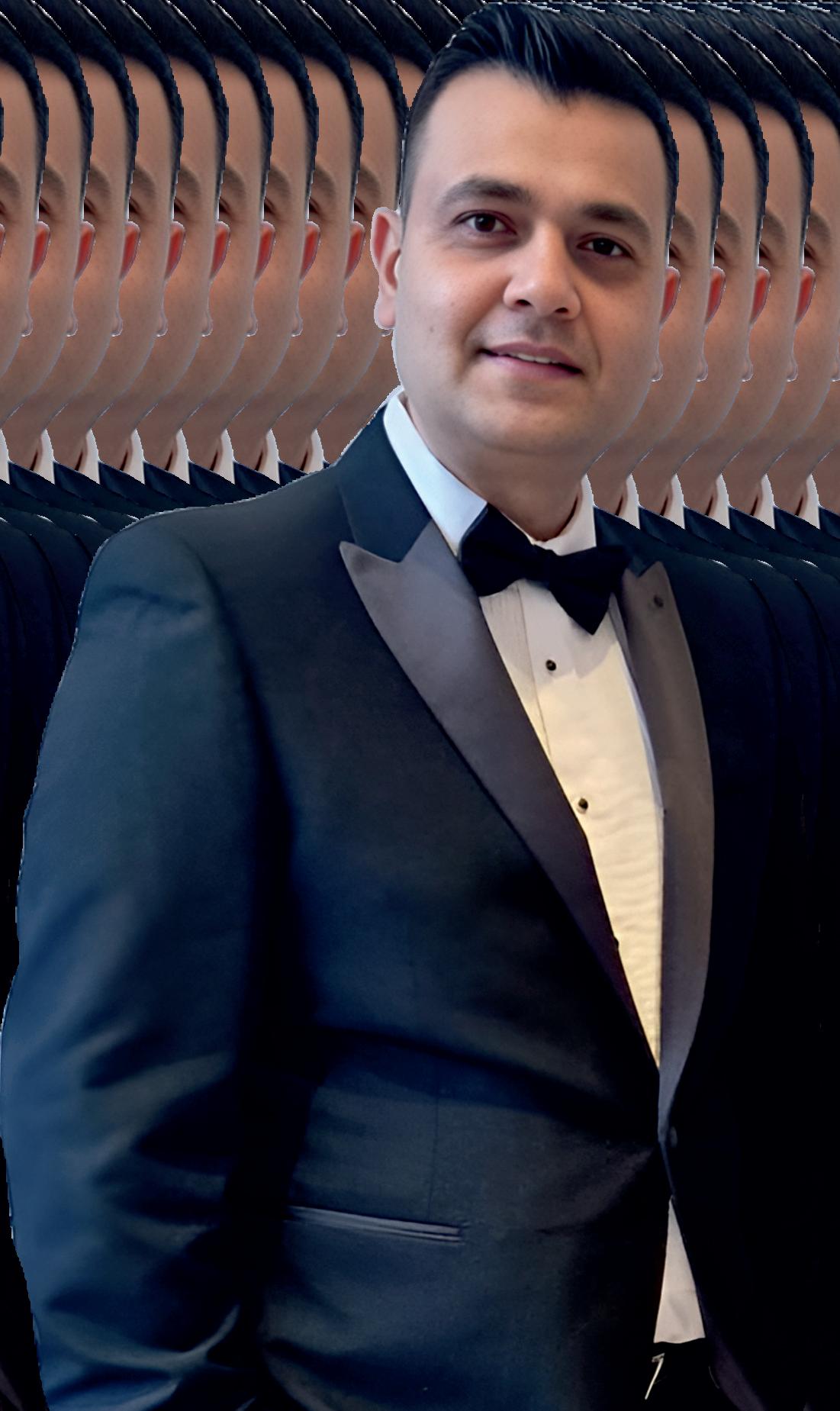

Parik Zala Cluster General Manager Clermont Hotel Group








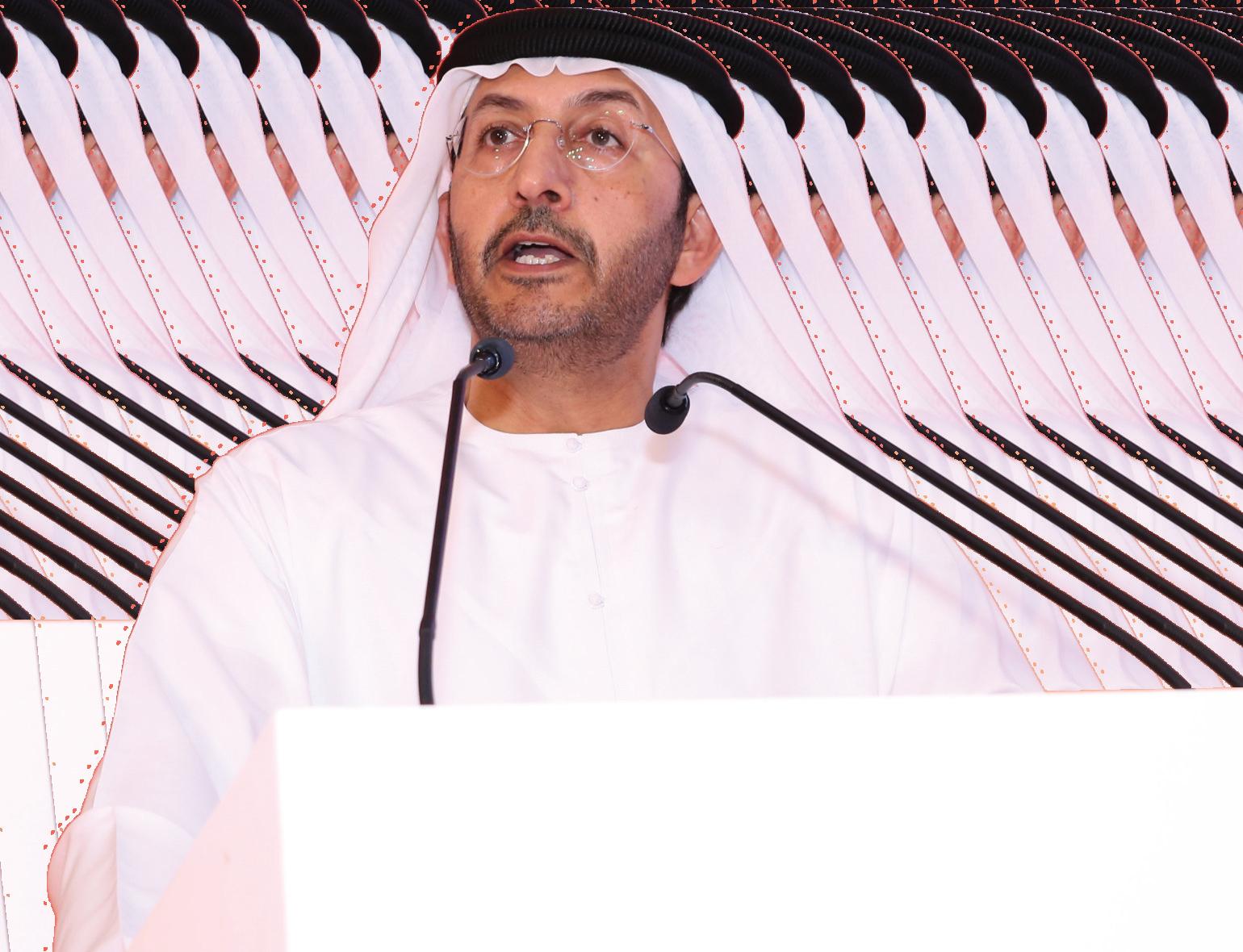
Editorial
-Alaya Brown
IA Tribute to Visionary Leadership
n a world defined by rapid transformation, where
innovation is no longer a luxury but a necessity, it becomes increasingly important to spotlight individuals who don’t just adapt they lead. This special edition of Insights Success of Visionary to Watch is dedicated to one such trailblazer: Parik Zala, a dynamic forcereshapingthelandscapeofbusinessandleadershipin 2025.
Parik Zala’s story is not just one of success, but of intentional vision, fearless execution, and a relentless drivetochallengethestatusquo.Hisjourneyisatestament to what happens when deep-rooted purpose aligns with boldinnovation.Whetherdisruptingtraditionalindustries or mentoring the next generation of thinkers, Parik’s impactisbothwide-reachinganddeeplypersonal.
Thiseditioncapturestheessenceofwhatitmeanstobea game changer not simply through financial achievements or business growth, but through the power to inspire, influence,andinitiatereal,lastingchange.Hisapproachto leadershipisgroundedinauthenticity,strategicforesight, and a commitment to empowering other qualities that distinguishavisionaryfromthemerelysuccessful.
In the pages ahead, you’ll discover what fuels Parik’s mission, how he navigates complexity with clarity, and why his name is quickly becoming synonymous with transformational leadership. From exclusive insights to candidreflections,thisfeatureaimstosparknewthinking in anyone daring to redefine what’s possible in their own field.
As we celebrate 2025’s game changers, we invite you to not only read Parik’s story but to engage with it and perhapsbemovedtostepmoreboldlyintoyourown.
HappyReading!
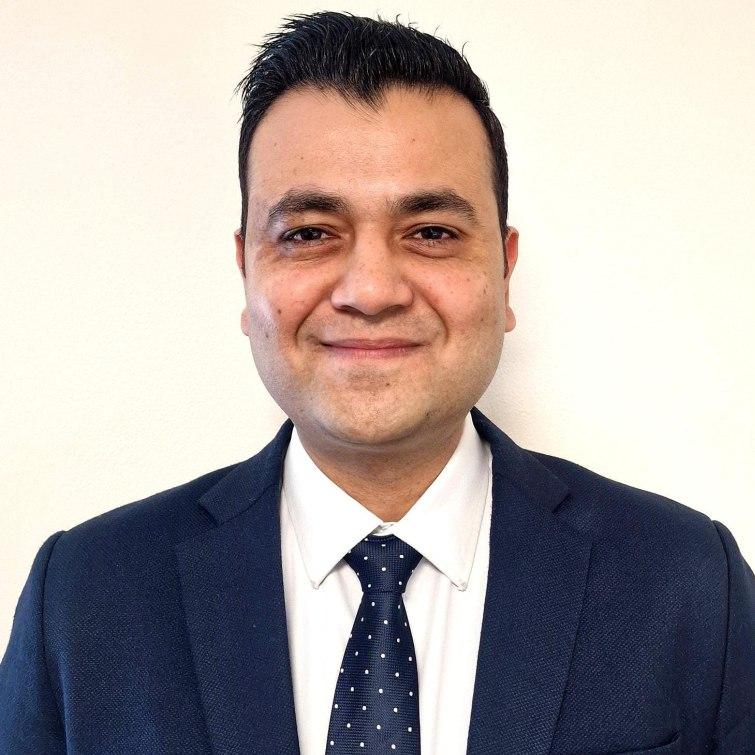
F E A T U R I N G

Parik Zala Redening Hospitality Leadership Through Purpose and Innovation
ARTICLES
Adapting Hospitality Leadership Management Strategies for Modern Guest Expectations
The Economics of Sustainable Hotel Transformation

Business
Business











Featurg
Parik
Zala
REDEFINING HOSPITALITY LEADERSHIP THROUGH PURPOSE AND INNOVATION
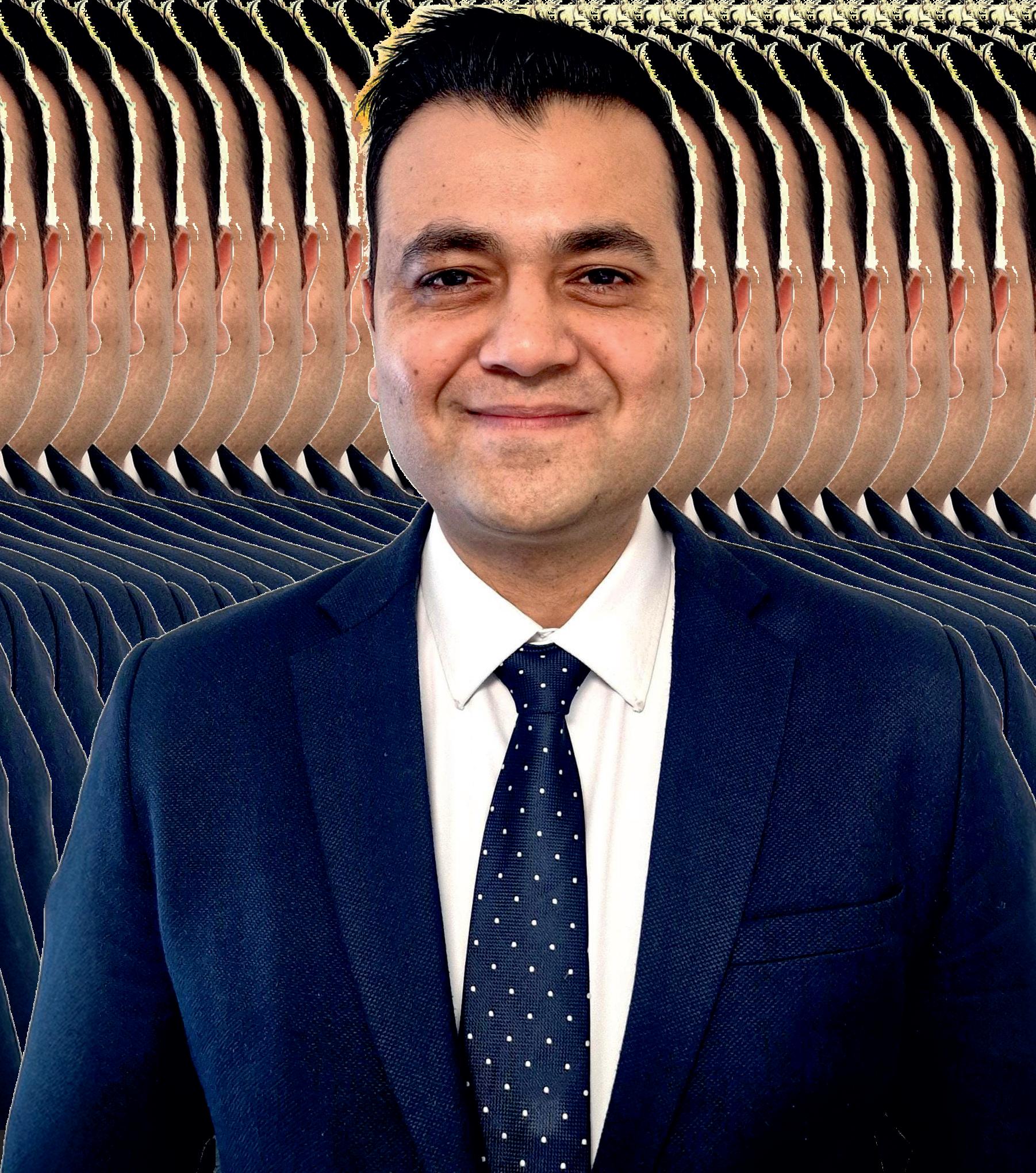
Parik Zala
Cluster General Manager
Clermont Hotel Group
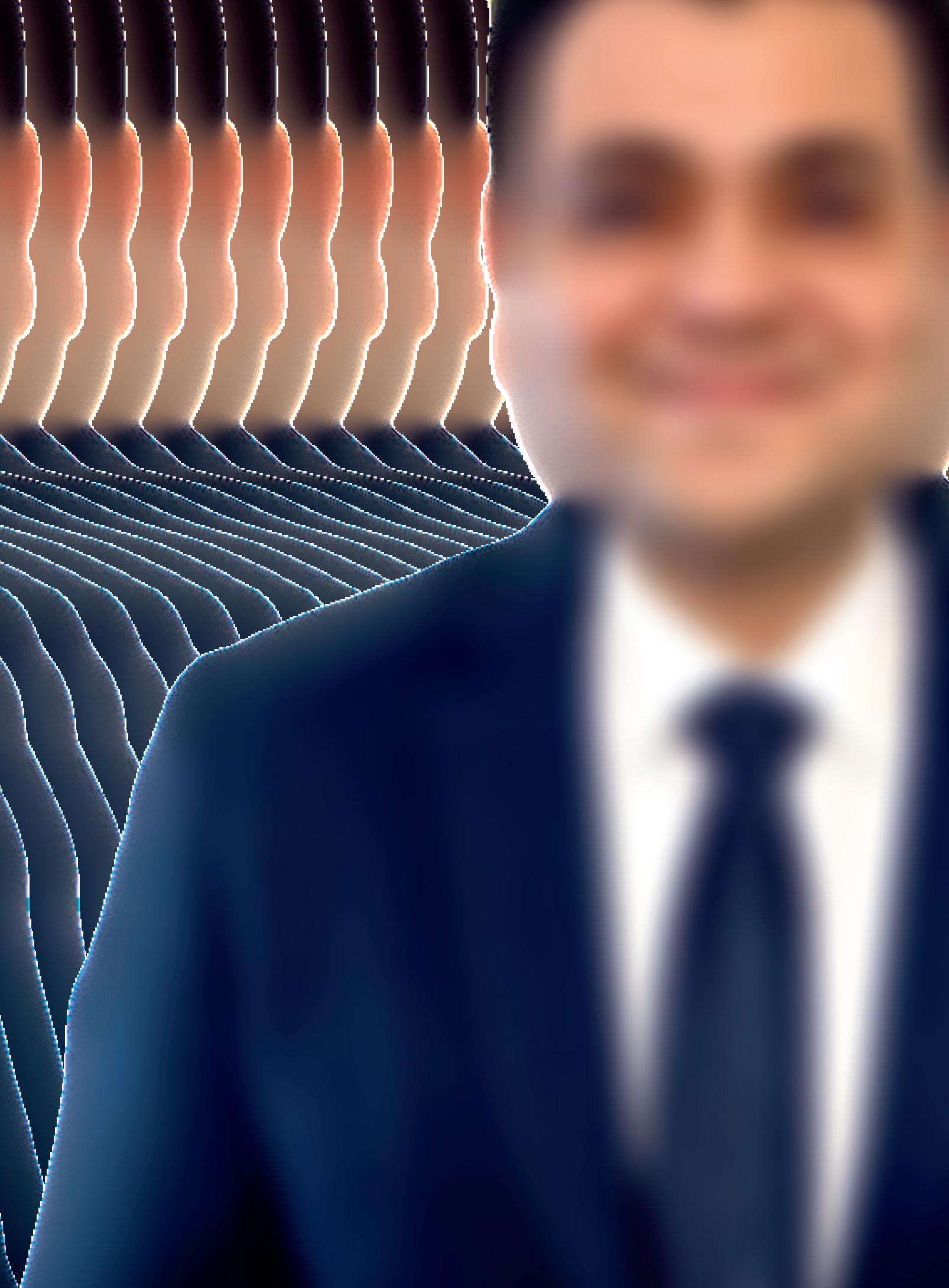
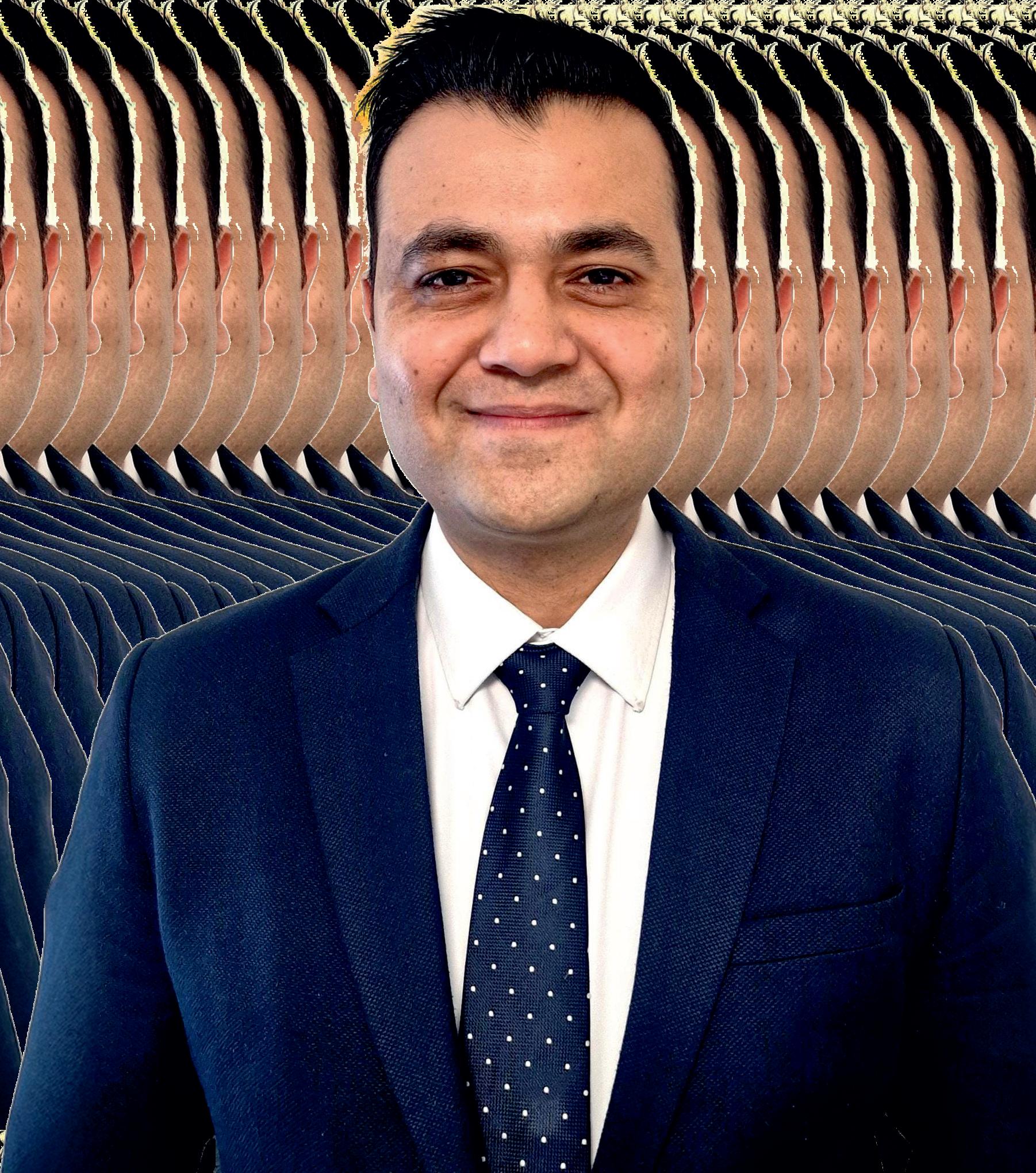
Few executives in a service-oriented but operationally demanding company can combine strategic vision with real human touch as Parik Zala In his role as Cluster General Manager at Clermont Hotel Group, Mr Zala is subtly revolutionising hospitality leadership by elevatingperformance,people,andpurpose.Throughoutthe courseofhismorethan15-yearleadershipexperience,hehas developedintentionallyviacuriosity,resiliency,andastrong desiretomakeadifference.
Mr Zala's management approach is unconventional. He is leadingfromthegroundup,influencedbypracticalexpertise in all facets of hotel operations, rather than from behind a desk. He can negotiate both opportunities and crises with a rare clarity because of his operational empathy Whether managingmultimillion-poundrenovationsoropeninga175roomhotelthatreceivedBCorpcertification,heisaconstant example of how creativity and practicality can and ought to coexist.
His steadfast commitment to people-first leadership, however,iswhatreallymakeshimstandout.Heisrenowned for cultivating inclusive teams and coaching talent from marginalised populations, promoting environments where people feel appreciated, empowered, and seen His philosophy that "leadership is about lifting others" is permittingineveryprojectheundertakes,fromstrategyESG integrationtodailyteamengagement.
Parik Zala is changing the way leadership is applied in the hotelindustry,notjustmanagingproperties.Heiscreatinga legacy characterised by trust, change, and lasting influence withacomposedassuranceandanunwaveringdesiretoleave thingsbetterthanhefoundthem.
Early Foundations: Building Character Through Curiosity
Born with what he describes as "a passion for people and service," Mr Zala's journey into hospitality wasn't merely a career choice it was a calling. His formative years were markedbyaninsatiablecuriosityandaworkethicthatwould laterbecomethecornerstoneof his professionalphilosophy The decision to pursue a BBA in International Hotel & Tourism Management from the prestigious Schiller International University, spanning campuses in London and Switzerland,reflectednotjustacademicambitionbutadesire tounderstandhospitalityfromaglobalperspective.
Hisearlyyearswereshapedbyastrongworkethic,curiosity, and a desire to create memorable guest experiences foundations that have remained unchanged despite the complexitiesofmodernhotelmanagement.
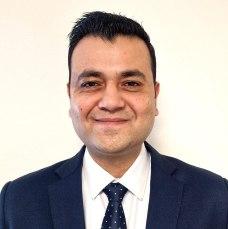
"Lead with purpose, not just posi�on. True leadership is about service empowering others, making tough decisions with integrity, and staying grounded in your values.”
Hisinternationalexposureduringuniversityinstilledinhima cultural sensitivity and global outlook, which have proven invaluable in managing diverse teams and catering to an internationalclientele.
The Professional Ascent: From Operations to Strategic Leadership
Overthepast15years,MrZala'scareertrajectoryreadslikea masterclass in progressive leadership development. Starting fromoperationalroles,hemethodicallybuiltexpertiseacross every facet of hospitality management, understanding that genuine leadership requires intimate knowledge of groundleveloperations.Hisevolutionfromhands-onmanagementto strategic oversight demonstrates a rare ability to maintain operationalawarenesswhiledevelopingbig-picturethinking.
Currently overseeing three properties under the Clermont HotelsGroupumbrella,hehasestablishedhimselfasaleader who thrives in environments where innovation meets execution. His approach is refreshingly holistic viewing hospitalitynotmerelyasabusinessofroomsandrevenue,but asanindustrybuiltonimpact,inclusion,andinspiration.
The numbers speak volumes about his effectiveness: he has successfully led multimillion-pound transformations, including a notable £240,000 refurbishment project that significantlyboostedrevenueperformance.
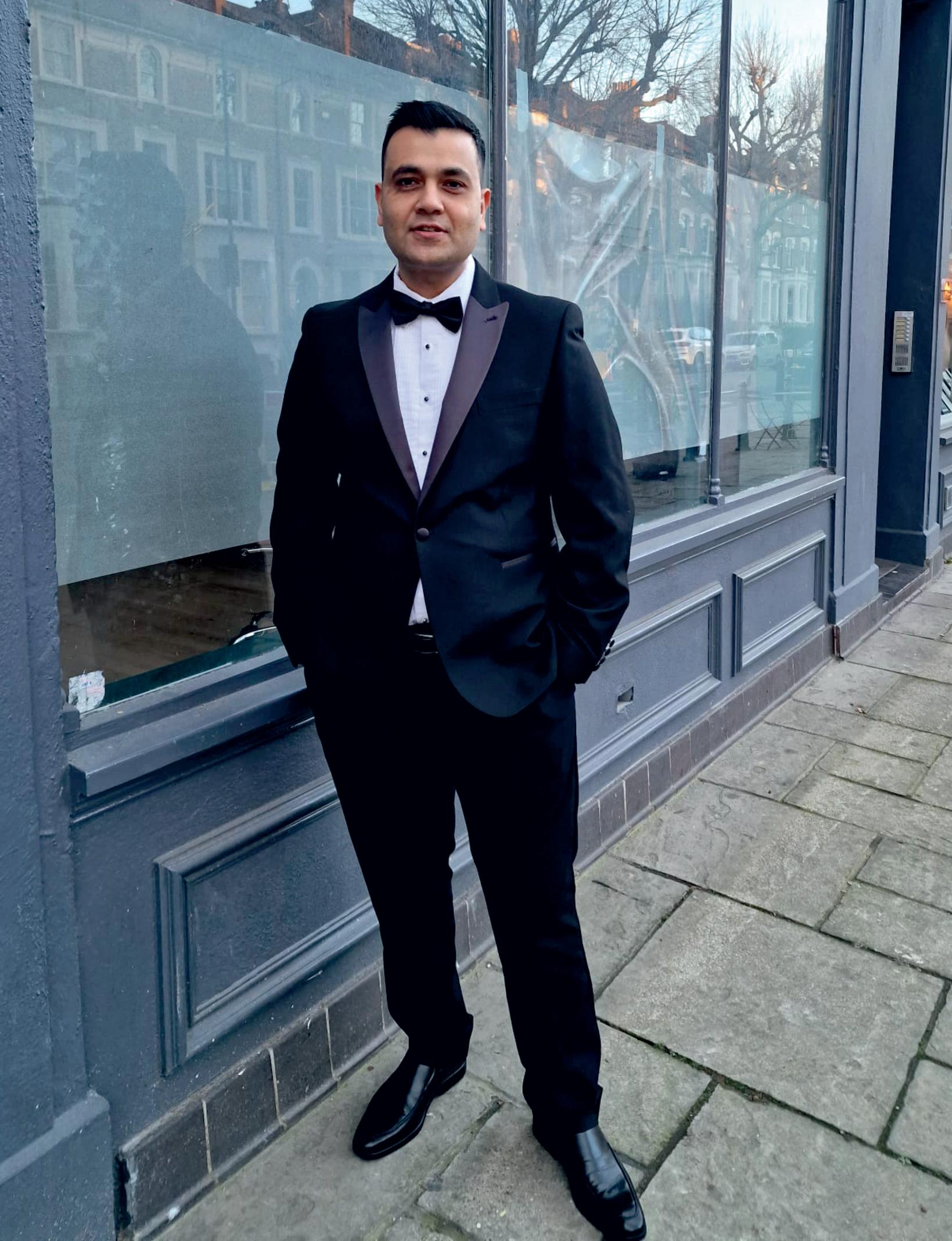
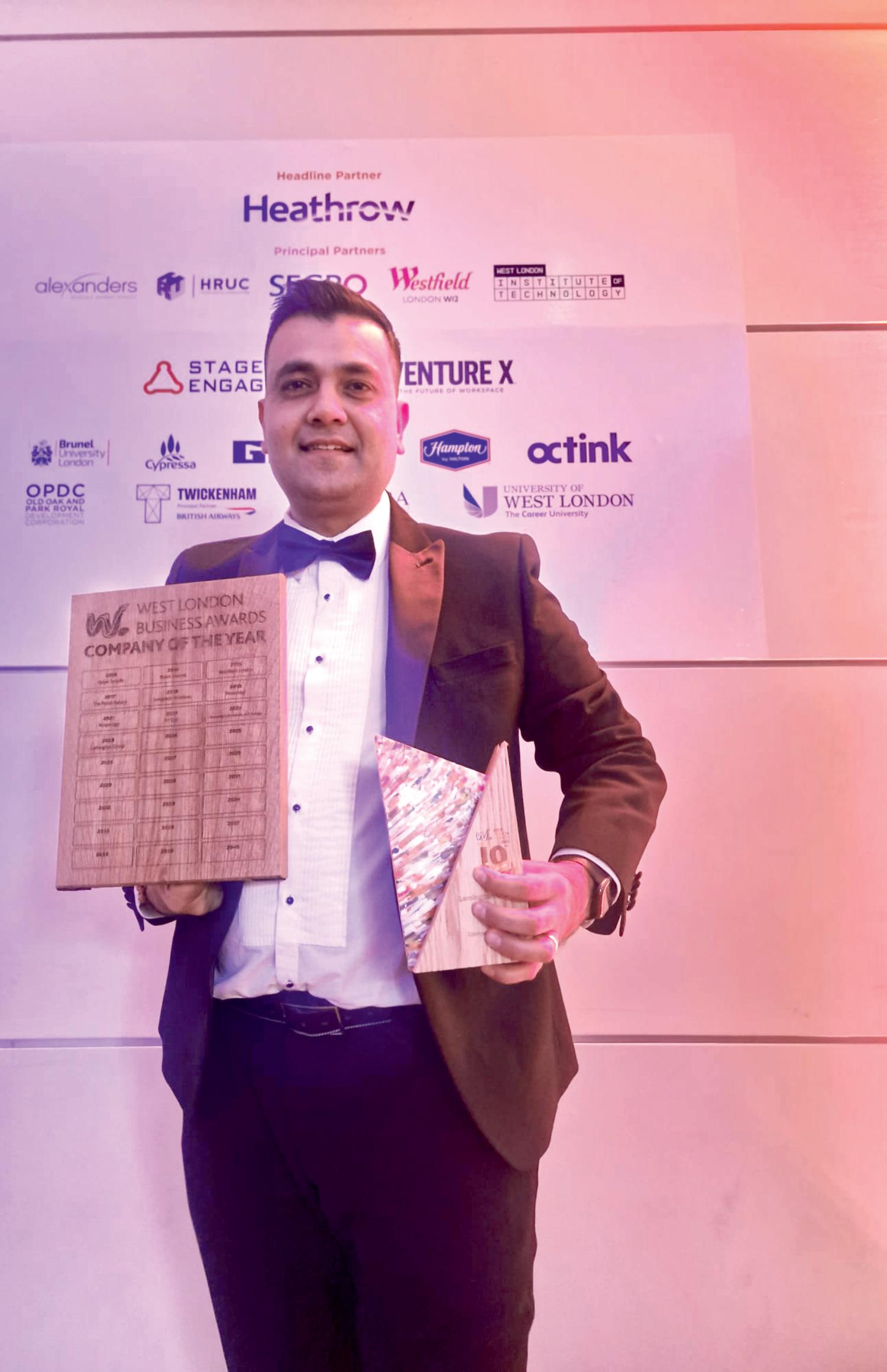
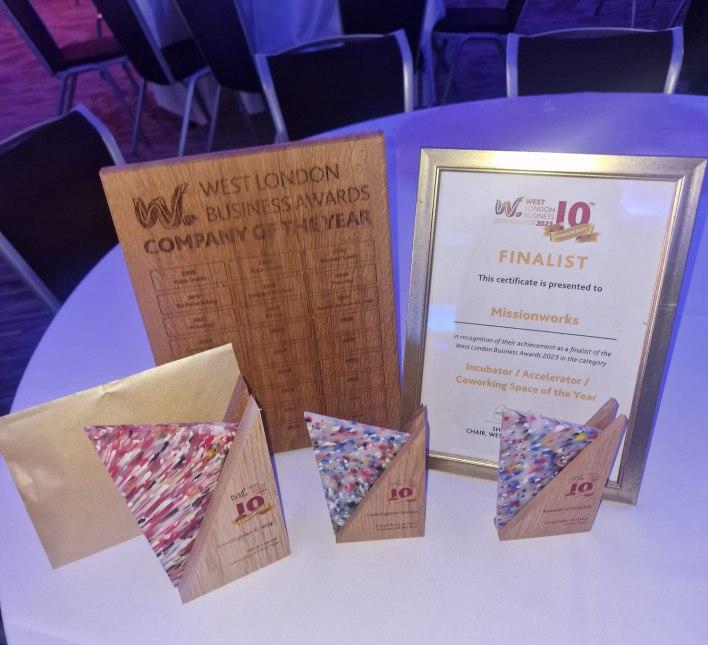
Perhaps more impressively, he launched a 175-bedroom hometelthatachievedBCorpcertification,demonstratinghis commitment to sustainability and ethical business practices—a forward-thinking approach that positions his propertiesaheadofindustrytrends.
CrisisLeadership:NavigatingthePandemicStorm
Thetruetestofleadershipoftenemergesduringcrisis,andthe COVID-19pandemicprovidedexactlysuchacrucible.Asa Multi-site GM at Whitbread during the pandemic's height, Zalafacedunprecedentedchallengesthatthreatenedthevery foundation of the hospitality industry. His response exemplifiedthekindofadaptiveleadershipthatdistinguishes exceptionalmanagersfrommerelycompetentones.
Rather than simply implementing defensive strategies, he demonstrated remarkable emotional intelligence and communityawareness.Inagesturethatcapturedwidespread attention, his team decided to illuminate their building with daily messages of support for NHS workers and social services, transforming their property into a beacon of positivity during dark times. This initiative, which earned BBC coverage, illustrated his understanding that businesses have responsibilities that extend beyond their immediate stakeholders.
"The pandemic taught me the value of adaptability, empathy, and strategic foresight. It reinforced the importance of leading with clarity and compassion." he explains. This crisisleadershipapproachcombiningpractical operational adjustments with inspirational community engagement revealed his capacity tofindopportunitywithinadversity
ThePhilosophyofPeople-FirstLeadership
What sets Mr Zala apart in an industry often criticised for high turnover and burnout is his unwavering commitment to people-first leadership.
His management philosophy centers on the belief that exceptional guest experiences can onlyemergefromengaged,empoweredteams. Thisconvictiondriveshisfocusondeveloping talent, fostering inclusive cultures, and creating environments where individuals feel genuinelyseen,heard,andvalued.
"Leadership is about lifting others." he states simply, yet this principle permeates every aspectofhismanagementapproach.
His commitment extends beyond his immediate teams throughactivementoringrelationshipswithindividualsfrom underrepresentedbackgrounds,partneringwithorganisations like Springboard and Novus to create pathways for diverse talentinhospitality.
Thispeople-centricapproachhasyieldedtangibleresults.His properties are consistently achieving high levels of team engagement and guest satisfaction, metrics that directly correlate with commercial performance His accolades, including the ‘Best GM of the year,’ validate not just his business acumen but his ability to inspire peak performance acrosshisorganisations.
BalancingAmbitionwithAuthenticity
In an industry notorious for demanding schedules and highpressure environments, Mr Zala has developed a sophisticatedapproachtowork-lifeintegration.Asafatherof three children and owner of two dogs, he understands firsthand the challenges of maintaining balance while pursuing professional excellence. His strategy combines intentional time management with strategic delegation, creating space for personal recharge while building stronger, more autonomous teams. “Balance is not about perfection, it's aboutpresence."heexplains.
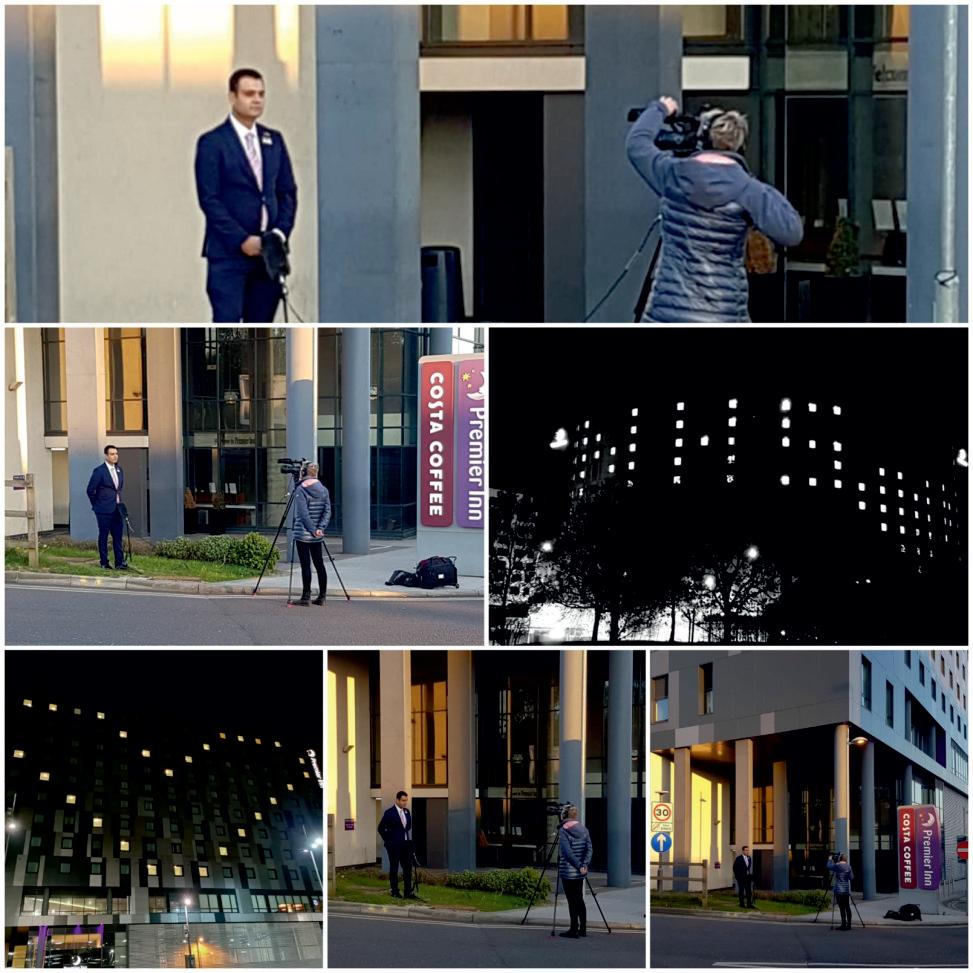
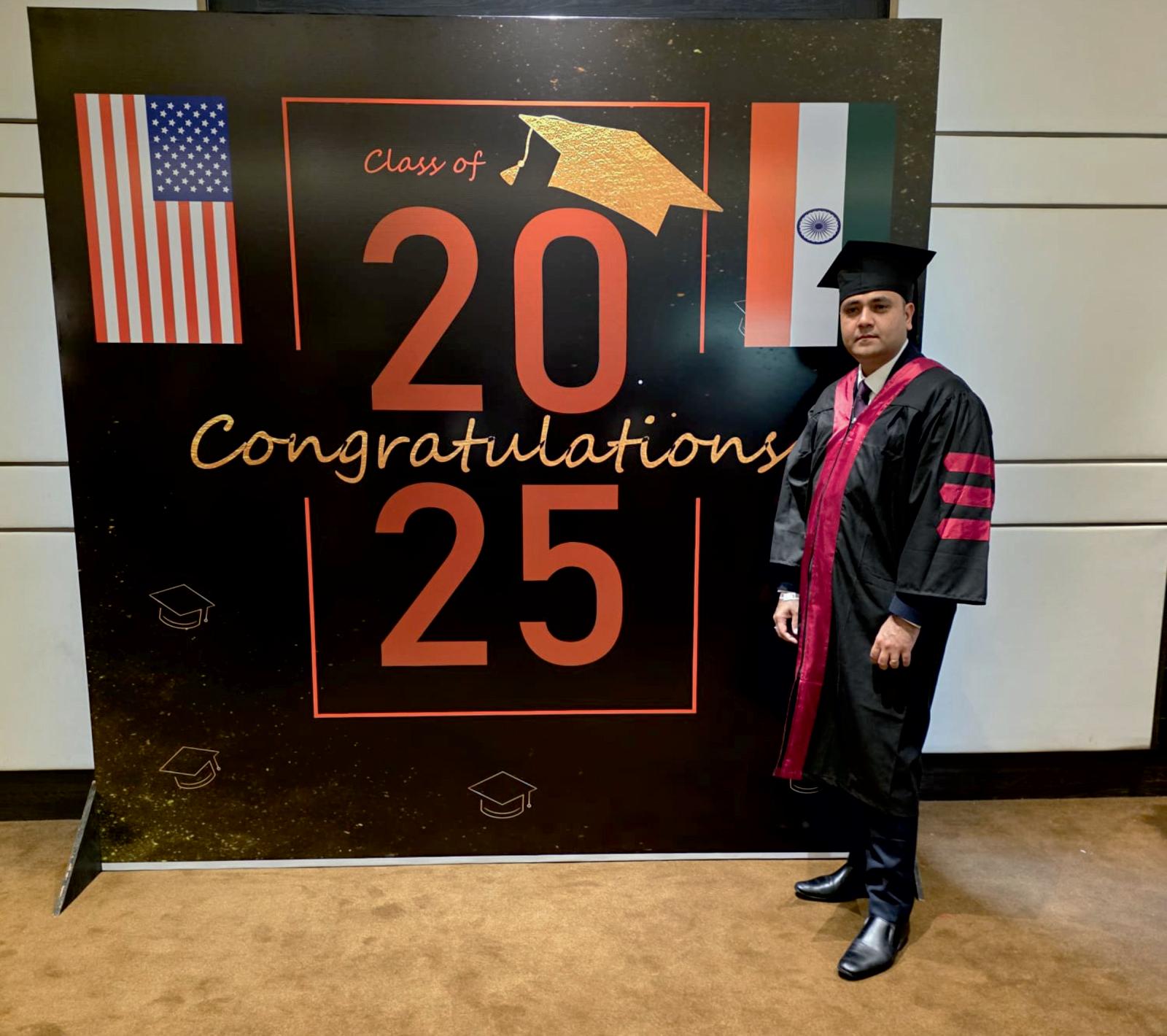
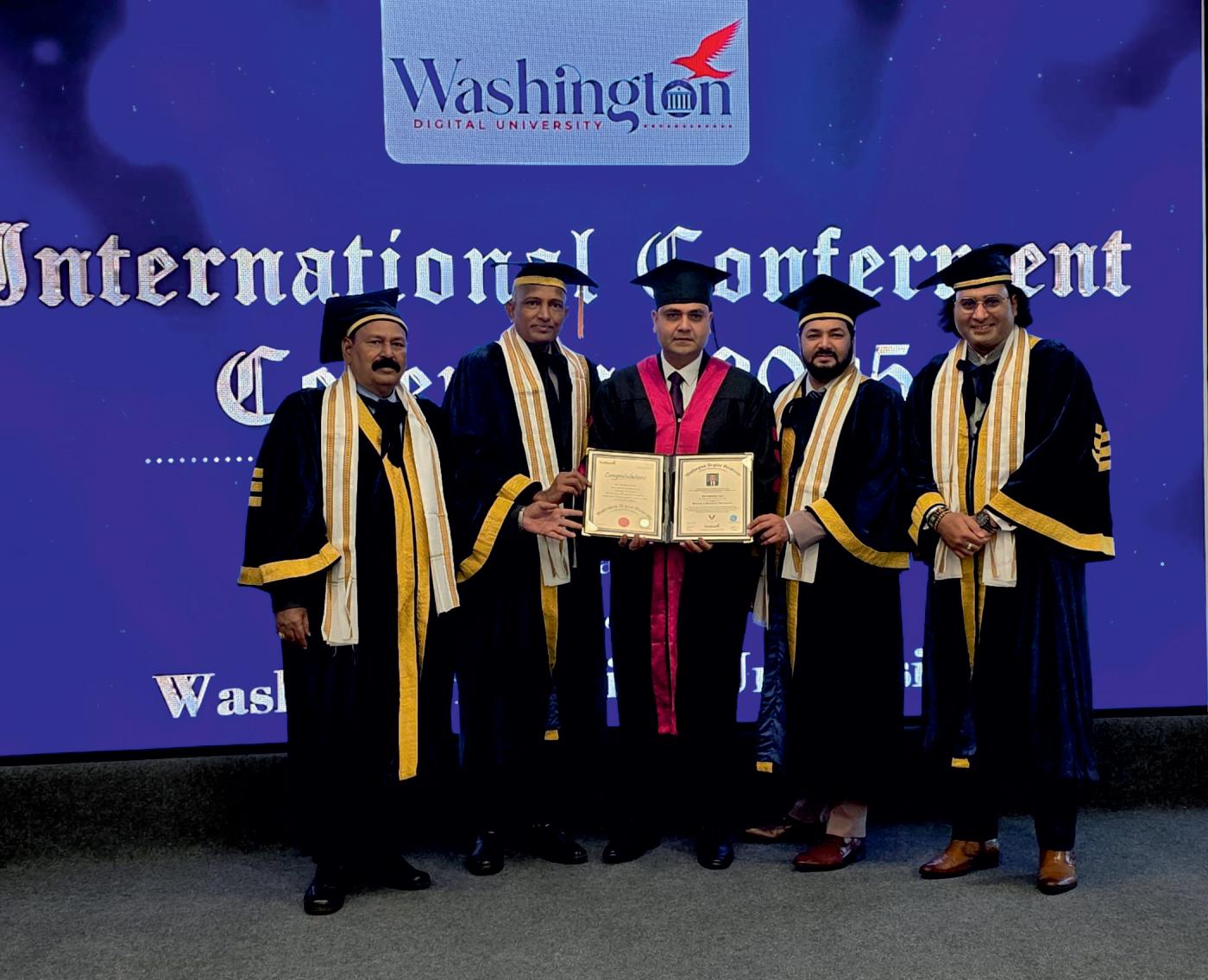

This philosophy manifests in his commitment to being fully present in each role he plays, whether as a strategic leader, mentor,orfamilymember
He maintains this balance through physical activities like boxingandrunning,regularself-assessmentpractices,andby modellinghealthywork-lifeintegrationforhisteams.
ContinuousEvolution:TheLearningLeader
MrZala'scommitmenttocontinuouslearningexemplifiesthe growth mindset essential for modern leadership. His recent doctorate from Washington University in Hospitality, following his Level 7 CMI qualification in Strategic Leadership & Management, demonstrates his dedication to formal learning alongside practical experience. He also invested his time at Disney Institute at Florida learning all about Quality guest service and how to impact every guest stay.
However, his educational approach extends beyond credentials to include voracious reading, active mentoring relationships,andengagementwithindustrythoughtleaders. Thiscommitmenttogrowthincludeshonestself-assessment ofareasfordevelopment.
Hecandidlyacknowledgesthathisdriveforperfectiononce ledtoover-involvementinoperationaldetails,andhisjourney toward more effective delegation illustrates the kind of selfawarenessthatenablescontinuousimprovement.
Similarly, his recognition that building broader industry relationships remains an area for development shows the humilitythatcharacterizesauthenticleadership.
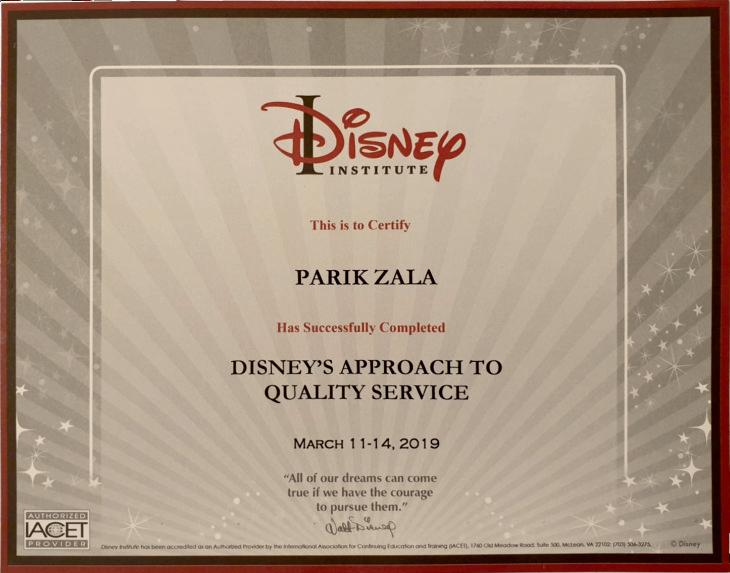
InnovationThroughESGIntegration
Mr Zala's forward-thinking approach extends to his championing of Environmental, Social, and Governance (ESG)principleswithinhospitalityoperations.Hissuccessin achieving B Corp certification for the hometel project positions him at the forefront of sustainable hospitality practices. This commitment reflects his understanding that modern businesses must balance commercial success with environmentalresponsibilityandsocialimpact.
Hisapproachtosustainabilityanddiversityinitiativesearned him BBC recognition for corporate social responsibility, highlighting work that creates "spaces where everyone feels welcomeandvalued."Thisrecognitionunderscoreshisbelief that hospitality's future depends on embracing both environmentalsustainabilityandsocialinclusion.
AVisionforIndustryTransformation
Looking beyond immediate operational concerns, Mr Zala envisions a hospitality industry transformed by authentic leadership, adaptability, and inclusion. He advocates for leaders who can balance data with empathy, ambition with purpose, creating environments where individuals can becometheirbestselves.
Hisadvicetoaspiringleadersreflectsthisvision: "Lead with purpose, not just position. True leadership is about service empowering others, making tough decisions with integrity, and staying grounded in your values." This counsel, drawn from hard-won experience, emphasizes that impactful leadershiprequirescouragetothinkdifferentlyandactboldly

"Success is not defined by �tles or targets it's defined by impact.”
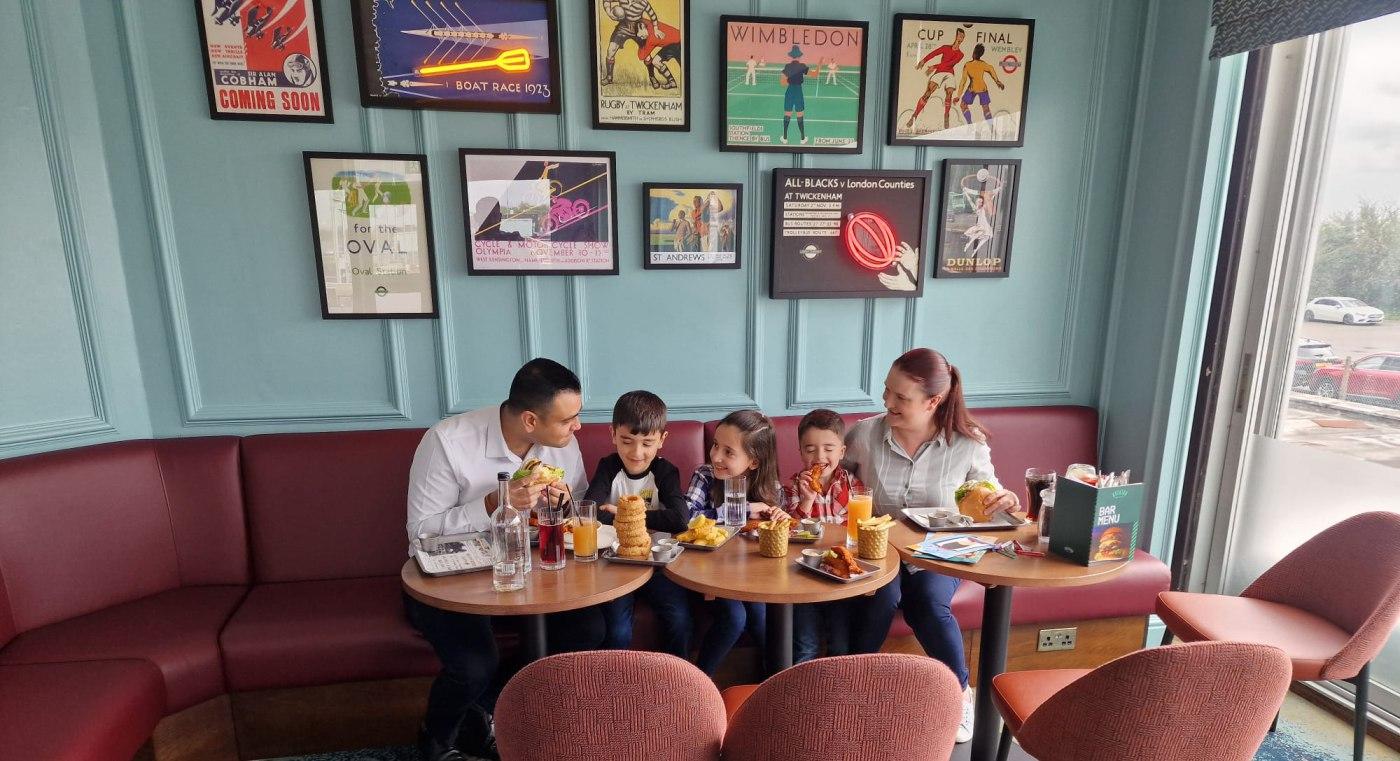
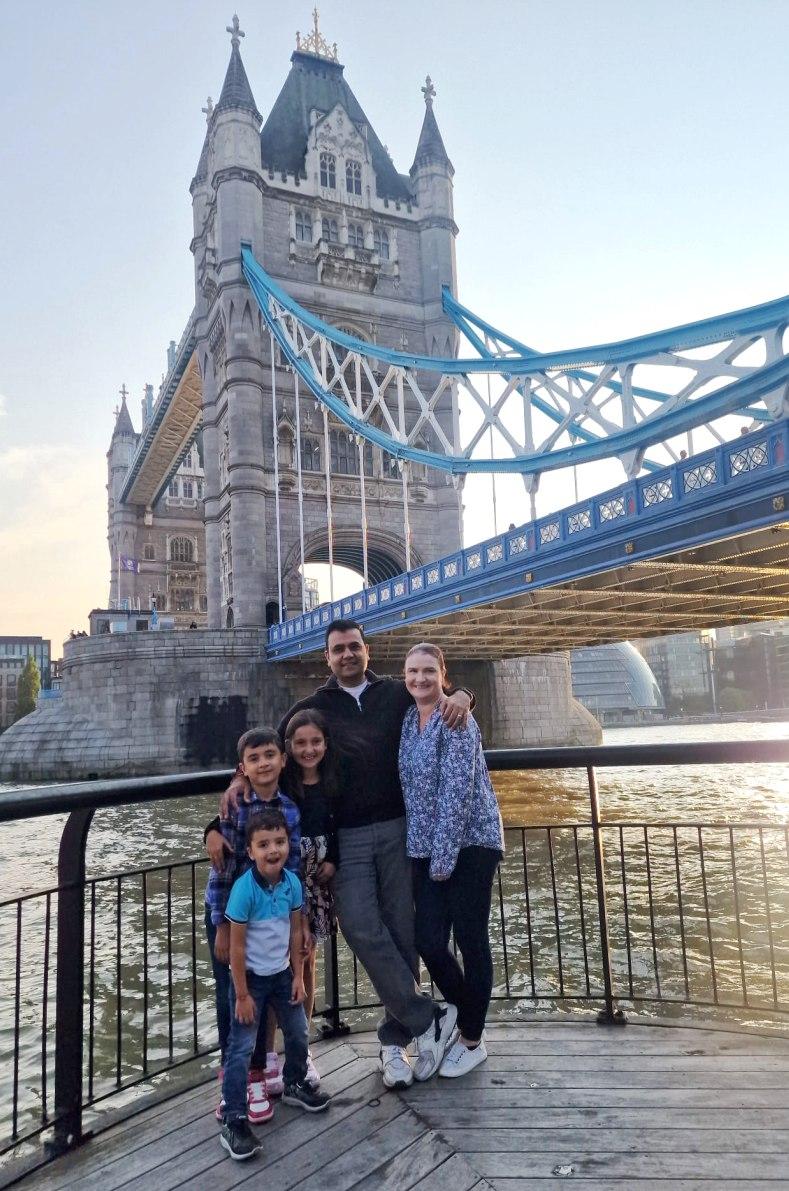
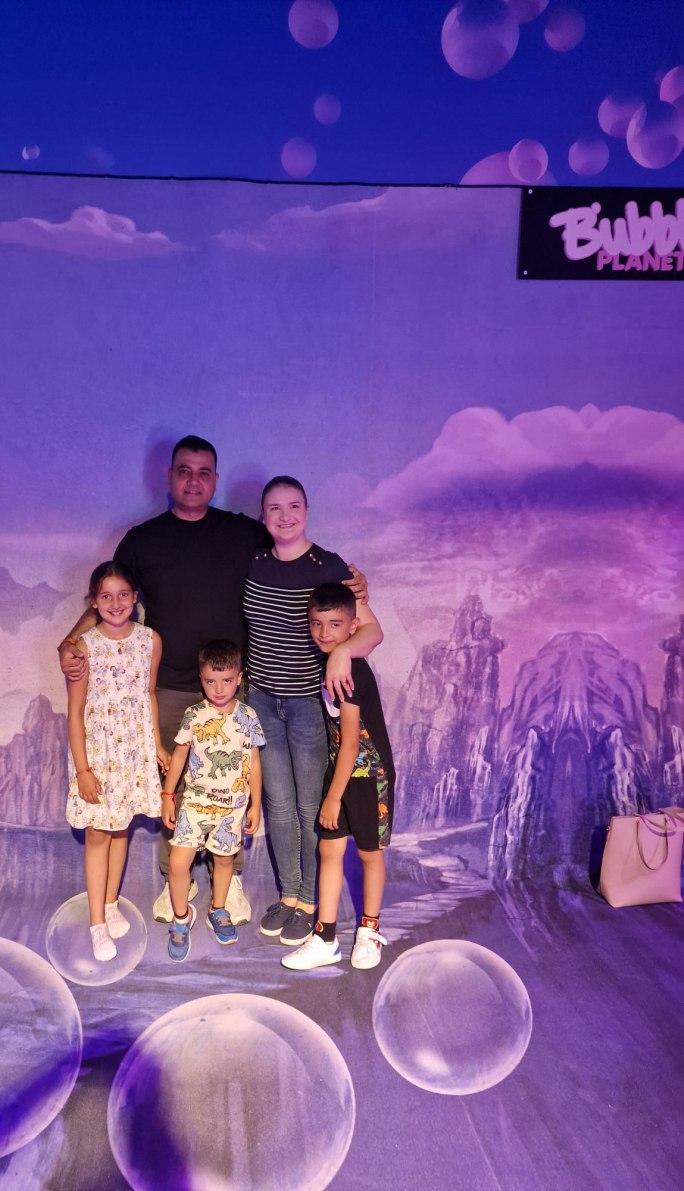
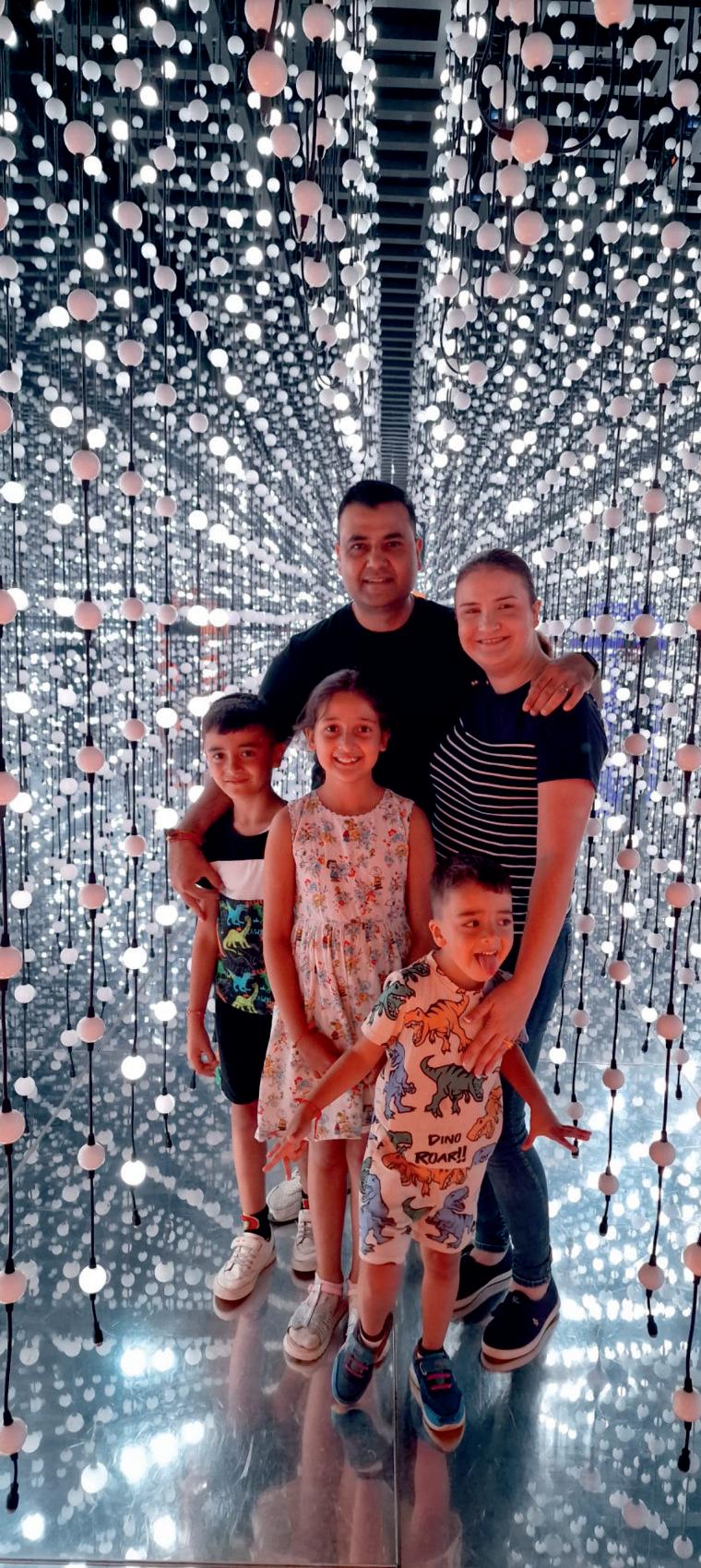
TheLegacyImperative
AttheheartofMrZala'sprofessionaldriveliesasimplebut powerful motivation: leaving things better than he found them.
Thislegacyimperativeinfluenceseverydecision,fromdaily operational choices to long-term strategic planning. His commitment to creating meaningful impact commercially and culturally reflects a mature understanding of leadership responsibility
"Success is not defined by titles or targets it's defined by impact."heemphasizes.Thisperspectivetransformsroutine hospitalitymanagementintoamissionofpositiveinfluence, whether through exceptional guest experiences, team development,orcommunityengagement.
Conclusion:TheFutureofHospitalityLeadership
Asthehospitalityindustrycontinuesevolvinginresponseto changing guest expectations, technological advancement, and social consciousness, leaders like Parik Zala are representingthesector'sbrightestpotential.Hiscombination of operational excellence, strategic vision, and authentic peopleleadershipprovidesablueprintforsustainablesuccess inanincreasinglycomplexbusinessenvironment.
Hisjourneyfromcuriousstudenttoaward-winningleaderis an illustration that exceptional hospitality management requiresmorethantechnicalcompetence,demandsemotional intelligence, cultural sensitivity, and an unwavering commitment to human dignity As he continues shaping London's hospitality landscape through his role at Clermont Hotels Group, Mr Zala embodies the evolution of industry leadersh
transformationalimpact.
In a field where success is often measured in immediate metrics, Parik Zala's approach is offering a different paradigm: sustainable excellence built on authentic relationships, continuous learning, and purpose-driven leadership. His story is serving as both inspiration and instruction for current and future hospitality professionals seeking to create meaningful change in their organisations andcommunities.

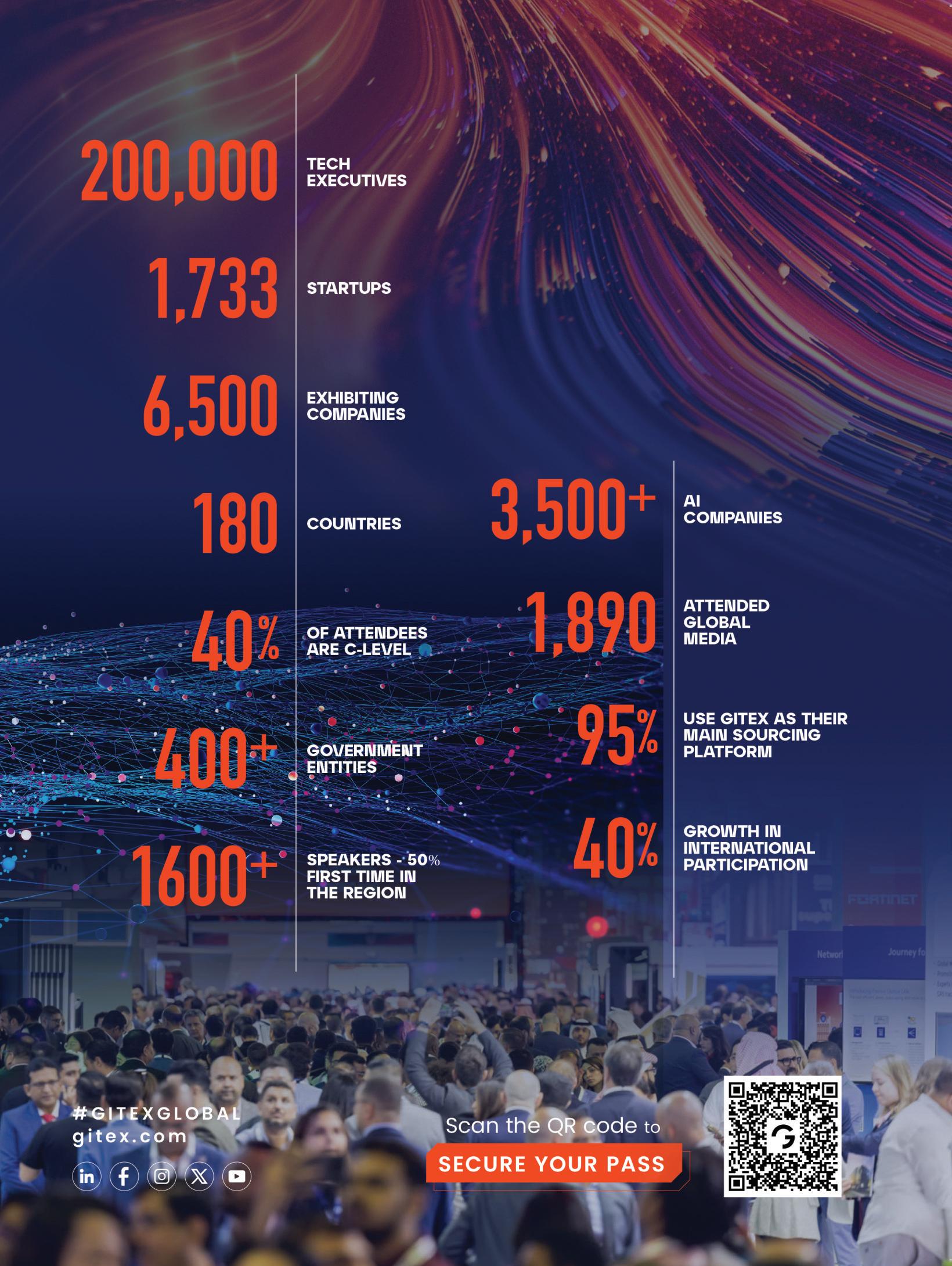


ADAPTING HOSPITALITY MANAGEMENT STRATEGIES FOR MODERN GUEST EXPECTATIONS

In today's high-speed, hyper-connected globe, the hospitality industry is changing at a breakneck pace. Thosedaysofsimplyofferingagoodstayorreasonable service are long behind today's customers demand tailored experiences, seamless technology integration, and sustainable practices. To remain attuned to this change, hospitality leadership management too must change and redesignitsapproach.Fromtechnologyanddigitalinnovation to emotional intelligence, contemporary leaders are to harmonizeheritageandtechnologysothattheymaintainthe integrity of hospitality—human touch. The Evolving Guest Profile
Today's travelers are better educated, more diverse, and mature than ever. They do not seek merely a tidy room and pleasantstaff.Theydemandauthenticity,customization,and accessibility TheemergenceofGenZandmillennials,most especially, has steered expectations toward tech-friendly, sociallyconscious,andexperientialstays.Whatthismeansis hospitality leadership management must move beyond the dominationofrunningtoencompassstrategicinnovationand compassion.
Hospitality executives today must also contend with the challenge of actually knowing customer personas and responding to an ever-diverse range of preferences, from dietary needs to room choice and green behaviors. These changing guest profiles make leaders flexible, multicultural, anddevelopmentfocused.
MergingEmotionalIntelligenceintoLeadership
Emotional quotient (EQ) is currently the foundation of effective hospitality leadership management Technical competence and knowledge about operations are still essential, but emotional quotients to handle empathy, to resolveconflicts,andtodriveunderpressurearealsoequally important.
Frontlineworkerstypicallywillmirrorthecultureofleaders. ThoseleadersmostcommittedtoEQcreateconditionswhere staff are valued, respected, and energized.This, in turn, will impactontheguestexperience.Thathotelwhereemployees greet you by name or take an interest in your preferences is likelytheonewheretheleadershiphascreatedanemotionally intelligent,responsiveserviceculture.
CombiningTechnologywithHumanTouch
Technology, from artificial intelligence-powered concierge services to cell phone check-ins, is rapidly transforming the hospitality sector However, hospitality leadership management is all about combining all this technology with theultimatehumantouchmagic.
Leaders need to ensure that technology adds to, and not detracts from, the guest experience. For instance, using data analyticstoenhancepersonalizationandforecastpreferences enables staff to provide more customized experiences
Leaders also need to train their staff well so that they can utilize these tools in the best possible manner without compromisingongenuinehospitality
Adapting to new systems, therefore, involves an investment in upskilling the workforce. Management would need to be proactiveinfacilitatingemployees'movementtotechnologyinnovative jobs to ensure that employees' confidence and abilityintheirnewchangingrolesaremaintained.
Sustainability and Social Responsibility as Leadership Priorities
Sustainability is not cool anymore, it's the norm. Customers carefully think now about which companies are doing it for the planet and for ethics. Hoteliers need to integrate sustainability into the very business plan, from buying local food to eliminating single-use plastics and reducing energy consumption.
Strong hospitality leadership management is not a matter of control, but a desire of long-term value. It must also be champions of social responsibility supporting local communities, practicing inclusive employment, and maintainingfairlaborpractices.
Hotels, for instance, who engage customers in green programs,likebeachclean-upsortreeplanting,buildasense of common purpose that drives customer loyalty and reputation.
Agoodleaderisasgoodasthepeopletheylead.Inhospitality wherecustomerexperienceisinthehandsoffront-linestaff, empowering staff is key. Exceptional hospitality leadership management is all about building an ownership culture in whichstaffareencouragedtothinklaterally,figurethingsout themselves,andowntheirwork.
This is achieved by leadership that is based on trust, communication that is open, and ongoing training. Initiative discovery and motivational aids build morale and builds a cultureofservicethatengagesguests.
Secondly, team diversity builds richness in service delivery Theleadersmuststrivetocreatediversespaceswherevaried points of view are welcomed, innovation and empathy have room.
TheRoleofData-DrivenDecisionMaking
Contemporary hospitality leadership also relies on data analysis to inform choices. Real-time guest action,
reservation trend, reviews, and service trends provide managers with the ability to predict demand, customize experiences,andmaximizeefficiency
Likewise, visitor comment analysis identifies areas of pain and justifies service standards Likewise, occupancy behaviorsinhigh-seasondeterminebest-practicestaffingand resource planning. Information, though, is not sufficient in and of itself—it is interpretation and action thereon by managementthatisimportant.
Management is required to reconcile the science and art of hospitality with the application of information to support decision-making but not at the cost of removing the human factorthatterrificservicerelieson.
LeadinginUncertaintyandChange
TheCovid-19pandemicwasevidenceofhospitalityleaders' resilience. It was a demonstration of adaptive leadership, empathy,andcompetencetoleadwithcompassioninacrisis setting.The managementof hospitality leadership must stay firm on resilience and flexibility during the recovery of the industry.
Either reacting to changing travel trends, coping with geopolitical volatility, or dealing with financial turbulence, leaders need to turnaround fast Scenario planning, stakeholder management, and mental wellbeing support to teamsarenowthemust-haveskillsforleaders.
Conclusion:Future-ReadyHospitalityLeadership
Hospitality is, by nature, a business. But great service is changing—and so is leadership. Leadership management of hospitality today requires an equal measure of emotional intelligence, technical acumen, cultural awareness, and strategic vision. It's about creating spaces where guests and associatescometolife,whereinnovationisintertwinedwith legacy,andwhereeveryinteractionispersonalandrelevant.
Inordertoremainintheforefront,hospitalityleadersoftoday are not only being called upon to manage, but to inspire, innovate,andredefinetheverymeaningofwelcomingothers. Andletusnotforget,amidstaworldofrapidchange,thatitis heart-firstvisionarieswhowillforgethefutureofhospitality.

The Economics of Sustainable Transformation


WHotel
ithsustainabilityfinallysoundinglikesomething thatcanreallyhappen,thehotelindustrystandsat a turning point. Hotel transformation was previously a matter of surface-level aesthetic makeover or technological refresh now it's an existential commitment to economic,social,andenvironmentalsustainability
Hotel investors worldwide are now discovering that being greenisn'tjusttherightthingtodoitsgoodbusiness.Indeed, green hotel transformation is quickly becoming an industry necessityandnotanafterthoughtupgrade.
The Concept of Hotel Transformation under a SustainableModel
Hotelreformationinthepastwasmerelyaboutmodernization enhanced amenities, upgraded technology, or design. Sustainabilityhasalteredthis.Today,itencompassesnotjust reducing carbon footprints, minimizing waste, conserving water, local procurement, and utilizing renewable energy
Such changes do not only affect the environment but have a considerable effect on customers' attitudes, operational efficiency,andlong-termprofitability.
Thisgreenrevolutionisbeingspurredbyallmannerofthing climate change, increasing energy prices, tighter regulation,andincreasinglyhighernumbersofgreen-minded tourists. No longer do tourists just need somewhere to put their heads, but somewhere with their values in sync. Sustainabilityprevails.
TheCostFactor:UpfrontCostsvs.Long-termGains
Costisoneofthelargestissuesforhotelownerstogogreenby converting.Solarpanels,LEDs,greenbuildingmaterials,and water recycling systems all do come with a high initial cost. Accountingstudiesandactualpractice,however,allindicate thatthesecostspayforthemselvesoveraperiodoftime.


Forinstance,theacquisitionofenergy-efficientaircondition systems or smart room control systems will initially put pressure on capital budgets but, in a ten to five-year cycle, significantly save on utility bills. Furthermore, eco-friendly hotelsreceivetaxcredits,subsidiesfromthegovernment,and greenbuildingcertification,whichoffsettheinitialcosts.
The economic logic is simple: sustainability investment returns in terms of cost savings during operations and other sources of revenue in the form of higher branding, higher occupancyrates,andpremiumpricingstrategies.
RevenueOpportunitiesinSustainableHospitality
Apart from lower costs, green hotel redevelopment has immediatesourcesofrevenue.Brandpositioningisoneofthe most obvious. A LEED or Green Key certified hotel, for example, can charge a premium since environmentally consciousconsumerswillpaymoreforagreenhotel.
Second, these hotels are preferred partners of organizations and businesses with ESG values. This involves high-value B2Bdealsandextendedstaybookings.
Others of the restored hotels generate income from circular economy activities—composting organic waste for sale to surrounding farms, collaborating with artisans to sell refurbished products, or even renting their green spaces for partiesandeducation-basedtours.
StaffEmpowermentandCommunityImpact
Nohotelrefurbishmentwouldbecompletewithoutregardto its people and community aspects. To go green must create newjobs,forinstance,intermsofsustainabilitycoordinators or green operations managers. It also benefits staff through training,makingthemmoreskilledandsatisfiedatwork.
Furthermore, green hotels spend more on local farmers, artisans,andsuppliers,whichhelpstostimulatetheeconomy locally. That makes the hotels stronger in their local communitiesandbetteratportrayingahotelasaresponsible corporatecitizen.
Third, by minimizing dependence on imports and keeping supplychainslean,hotelscanmakethemselvesmoreresilient toeconomicorgeopoliticaldisruption—amassivebenefitin the post-COVID world and an age of climatic unpredictability.
HurdlestoReform
Green hotel reform is also difficult in spite of advantages. Ignorance,changeresistance,costofcapital,anduncertainty regardingreturnoninvestmentmightbesignificantobstacles. Apart from this, boutique hotels and small-scale hotels will havestillbiggerhurdlesowingtotheirsmallcapital.
But collaboration and sharing can bring it about. City governments, industry trade groups, and sustainability firms nowmorefrequentlyareprovidinghospitalitycompaniesof all sizes with tools, frameworks, and models for financing. Peernetworksandcasestudiesareanintegralpartoffostering trustandprovidingworkingblueprints.
LookingAhead:TheFutureofHotelTransformation
As the stress of climate change grows and demand by consumerskeepsshifting,sustainablehotelregenerationwill speed up. Future hotels will no longer be a resting spot or a holiday destination—those hotels will be leaders of circular economy,energyresilient,sociallyresponsible,anddigitally smart.
Smartsystemswilloptimizeresourcesinthemoment.Cities will be equipped with lungs in the form of green roofs. Interiors will be storytelling about place and reuse Hospitality will not only be service but stewardship—of people,planet,andpurpose.
Conclusion
Renewablereinventingofhotelsisnotaluxuryoption—itis an economic imperative coupled with an area of brand differentiation in a competitive marketplace. The pioneer hotels will reap financial gain, coupled with loyalty, reputation,andresistance.
And, as with any change, the journey towards sustainability willrequirevision,investment,andheart.Butthepayoff—in saved resources, repeat business, and long-term relevance —is worth the gamble. The hospitality industry's future, ultimately, depends not so much on how we welcome our guests, but on how we welcome the planet they're arriving upon.
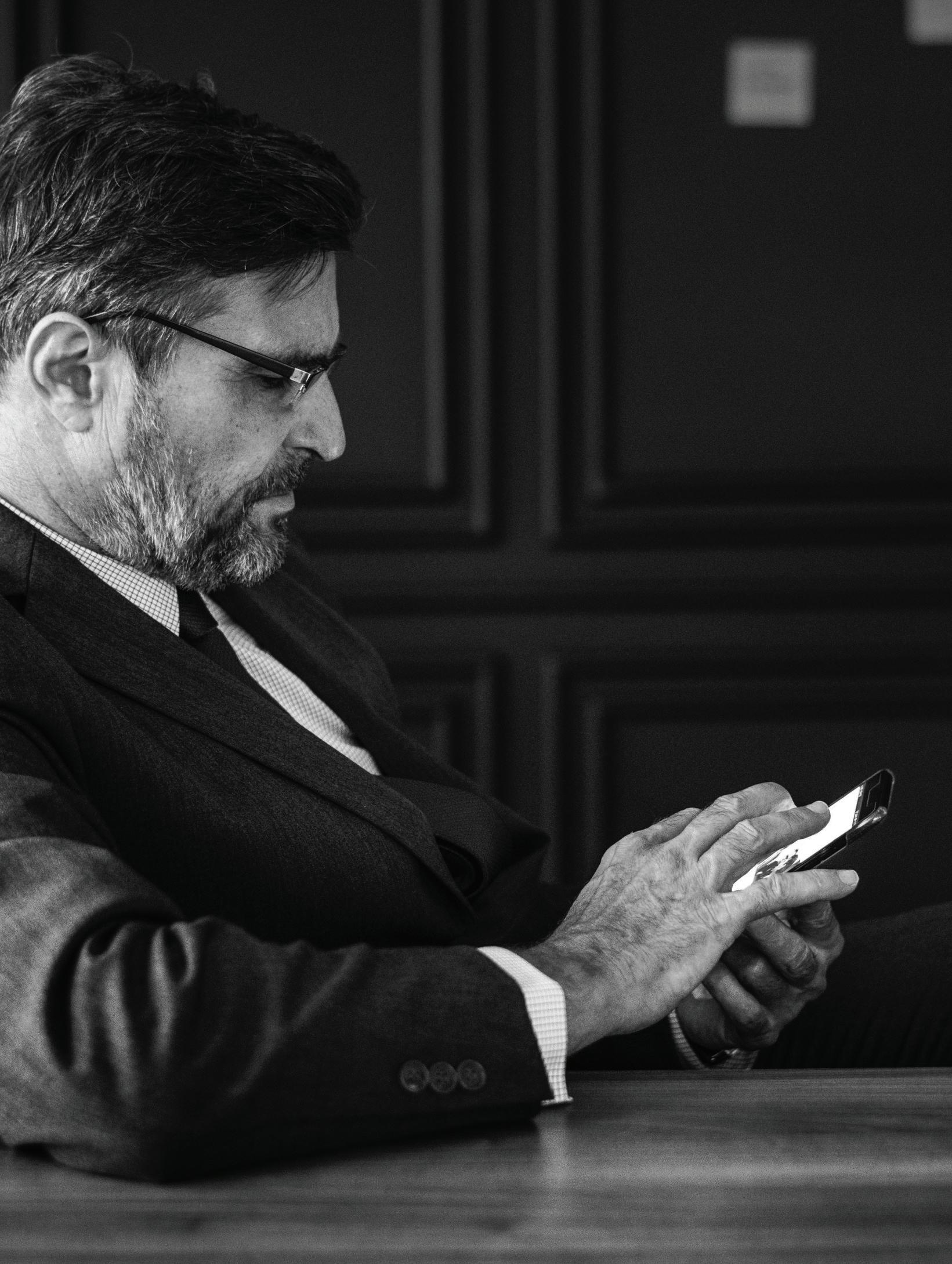








For Subscrip�on: www.insightssuccessmagazine.com
www.x.com/insightssuccess


